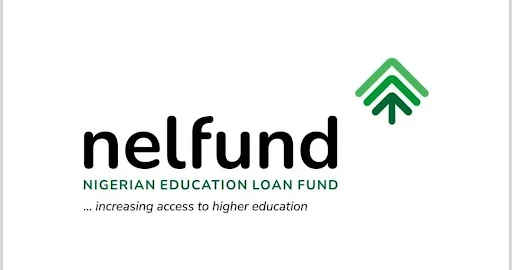By Ephraim Agbo
Let’s not fake it: Nigeria just launched a life-changing student loan scheme, and scammers are already turning it into a money trap.
Yep. The very people this loan is supposed to help—young, broke, and hopeful students—are being targeted with fake portals, cloned websites, and phishing traps.
And guess what? It’s working.
Too many students are clicking random links, filling out sensitive info, and even paying for what should be a free government loan.
🚨 NELFUND Is Screaming—But Is Anyone Listening?
Last week, the Nigerian Education Loan Fund (NELFUND) came out with a blunt warning:
❗ “Beware of fake loan portals. The only real site is www.nelf.gov.ng. Don’t get scammed.”
Sounds simple enough, right? But the truth is, these fake sites look real. Some are even better designed than the official one. And when you’ve been waiting months for “hope” to finally meet “help,” it’s easy to let your guard down.
But here's the kicker:
Who’s really to blame? Is it just the scammers—or a government that launched a massive digital scheme without adequately preparing the public for cyber fraud?
🎭 The Dark Side of Going Digital
Let’s call it what it is: Nigeria is going digital, but most of its citizens are still digitally vulnerable.
We have ministers bragging about innovation and smart governance, but students—especially those in rural areas—don’t have digital literacy, cybersecurity awareness, or even the luxury of stable internet.
So when a bright-eyed student sees a WhatsApp link saying, “Click here to fast-track your NELFUND loan,” what do you expect them to do?
Here’s what they’re not doing:
- Cross-checking URLs
- Verifying sources
- Bookmarking official sites
They’re desperate. And desperation + bad information = scam jackpot.
🧠 Let’s Talk Responsibility
Let’s stir the pot a bit:
- Why didn’t NELFUND launch with a full-on media blitz—radio jingles, town hall forums, TikTok explainers—before opening the portal?
- Why are telecom providers still allowing these fake portals to thrive online?
- Where’s NITDA, the so-called digital watchdog, when these phishing sites go live?
We love buzzwords like “tech-driven education,” but when it’s time to protect users, everyone goes mute.
💻 The Official Truth (That People Still Don’t Know)
If you’re applying for the student loan, hear this loud and clear:
-
There’s only one legit portal:
👉 www.nelf.gov.ng
Anything else is 419 with a tech upgrade. -
You don’t need to pay a Kobo:
The loan is interest-free. If anyone’s asking you to “pay ₦2,000 for fast approval,” that’s a scam. -
You don’t need an agent:
Your uncle’s neighbor’s son who claims he “has a connect” inside NELFUND is lying. Stop falling for it. -
Follow only verified handles:
- Twitter/X: @nelfund_ng
- Facebook/Instagram: @nelfund_ng
🗣️ Students Deserve More
Let’s be real. If a student gets scammed while trying to access a government loan, it’s not just their fault. It’s a sign that we haven’t done enough to prepare them.
So yes, scam warnings are great. But what we need is:
- Proactive digital education in schools
- Aggressive public campaigns (not just tweets)
- Quick shutdown of fake sites—not weeks after the damage is done
Until then, these scammers will keep winning. Because while NELFUND is building hope, fraudsters are building fake websites faster.
🎯 Final Word
Students, shine your eye. The internet is a jungle. And just because something looks “official” doesn’t mean it is.
The Nigerian government has finally done something right with this student loan scheme—but if it can’t protect its users from digital wolves, then the victory is hollow.
So before you click, verify. Before you fill out anything, confirm. And if anyone asks for money to “help” you apply—run.
Because not every portal leads to your future.
Some lead straight to regret.
Need help applying for the real deal? Drop your questions in the comments—let’s keep each other safe.












No comments:
Post a Comment